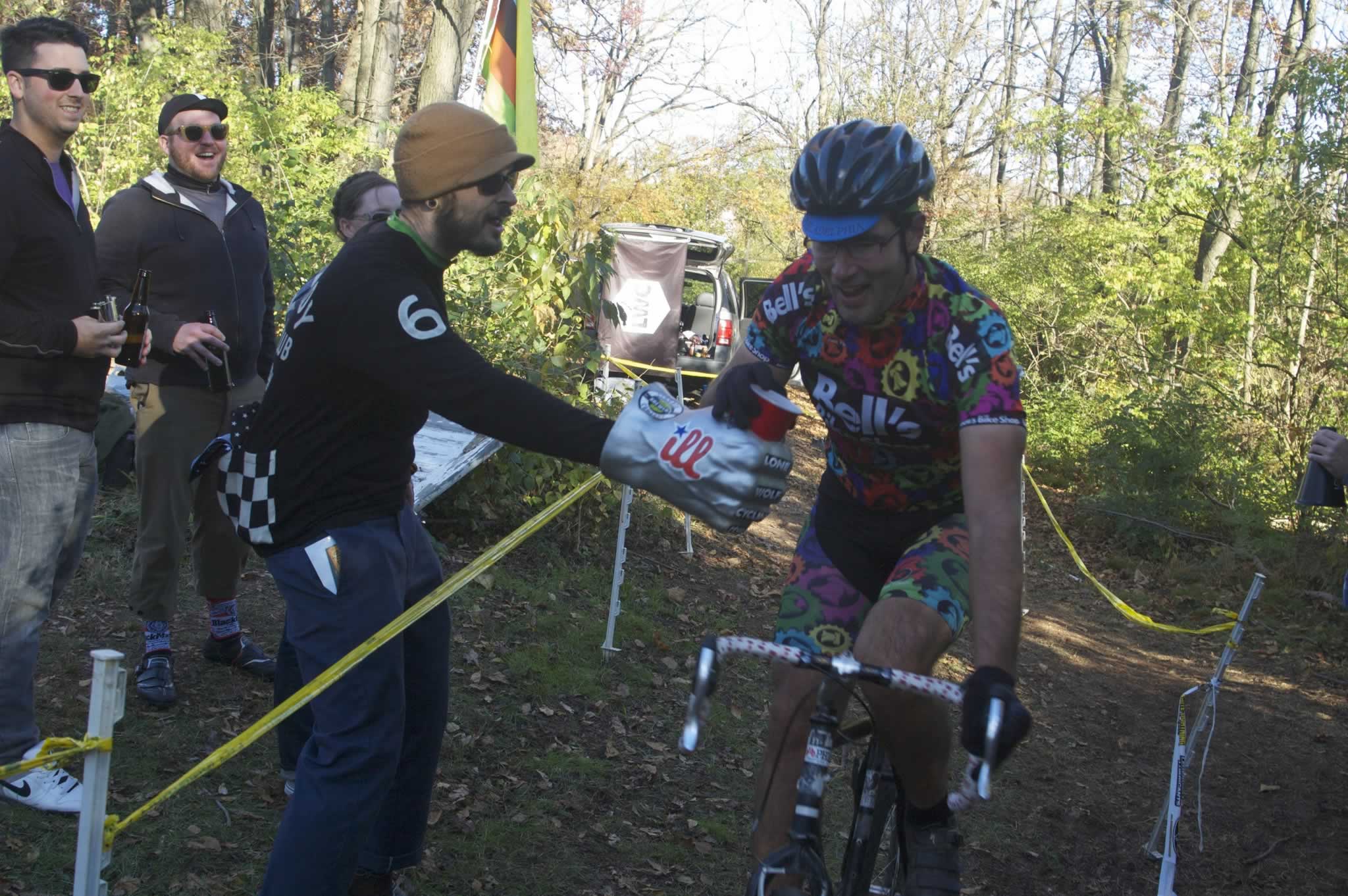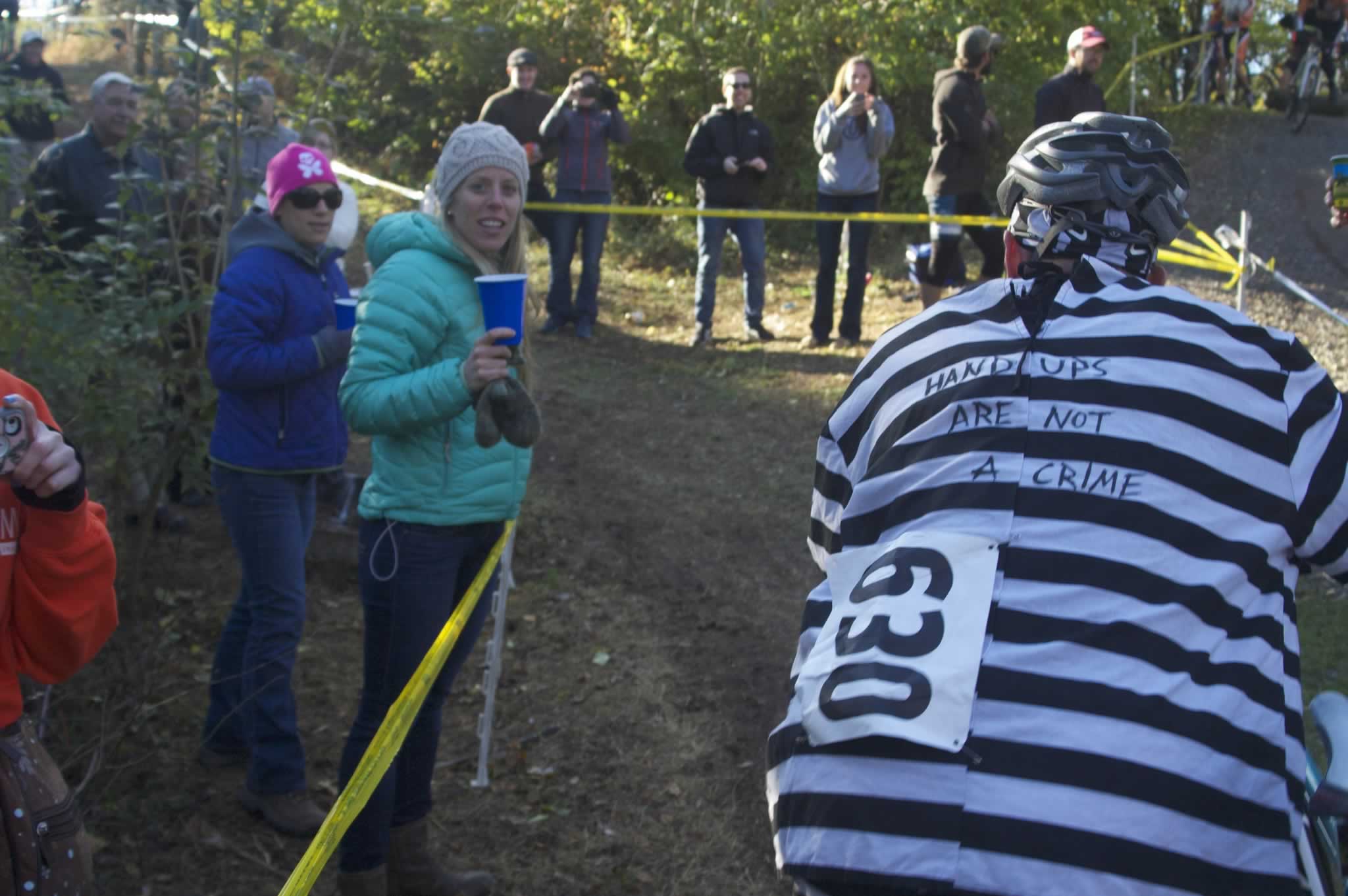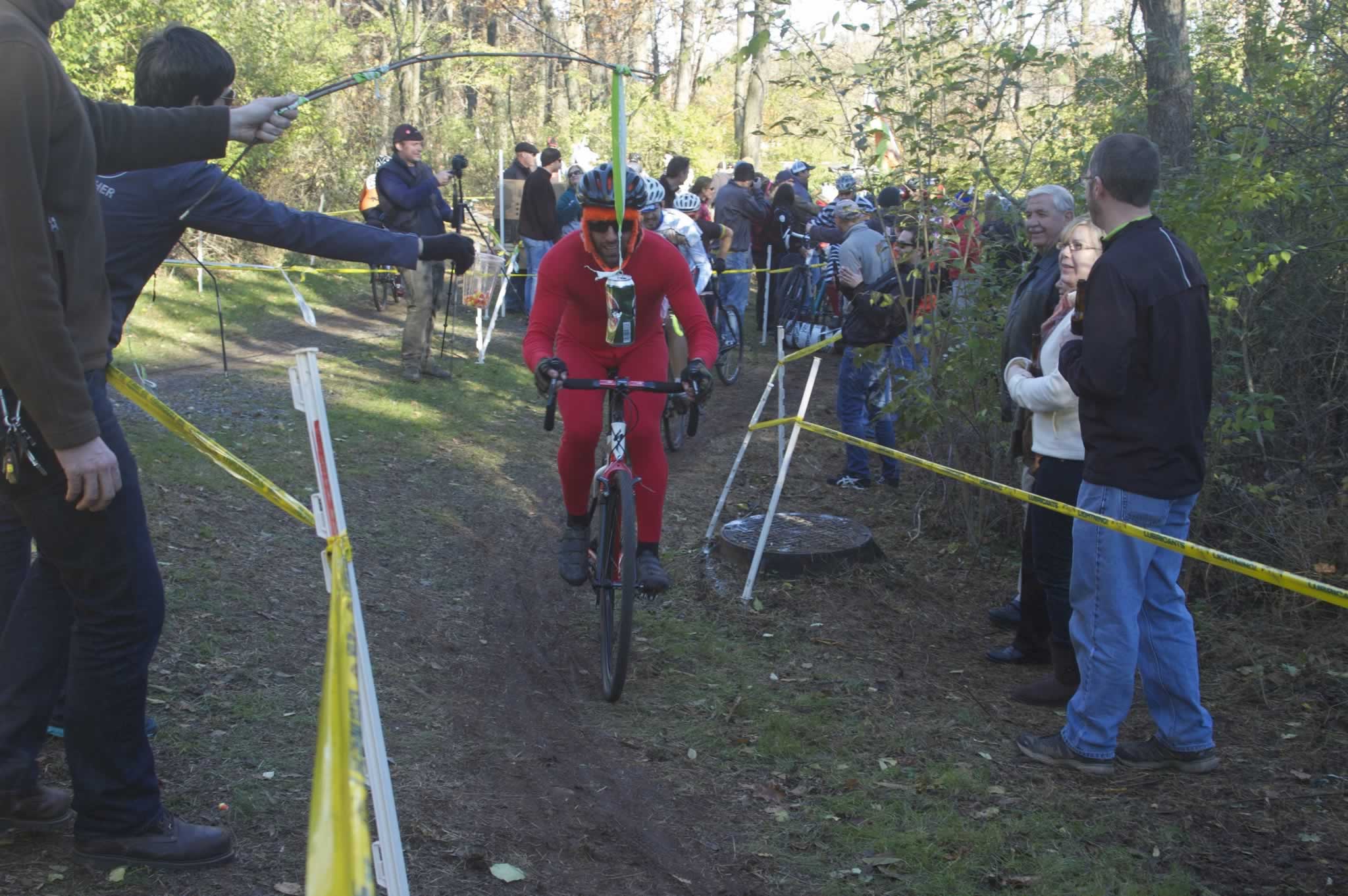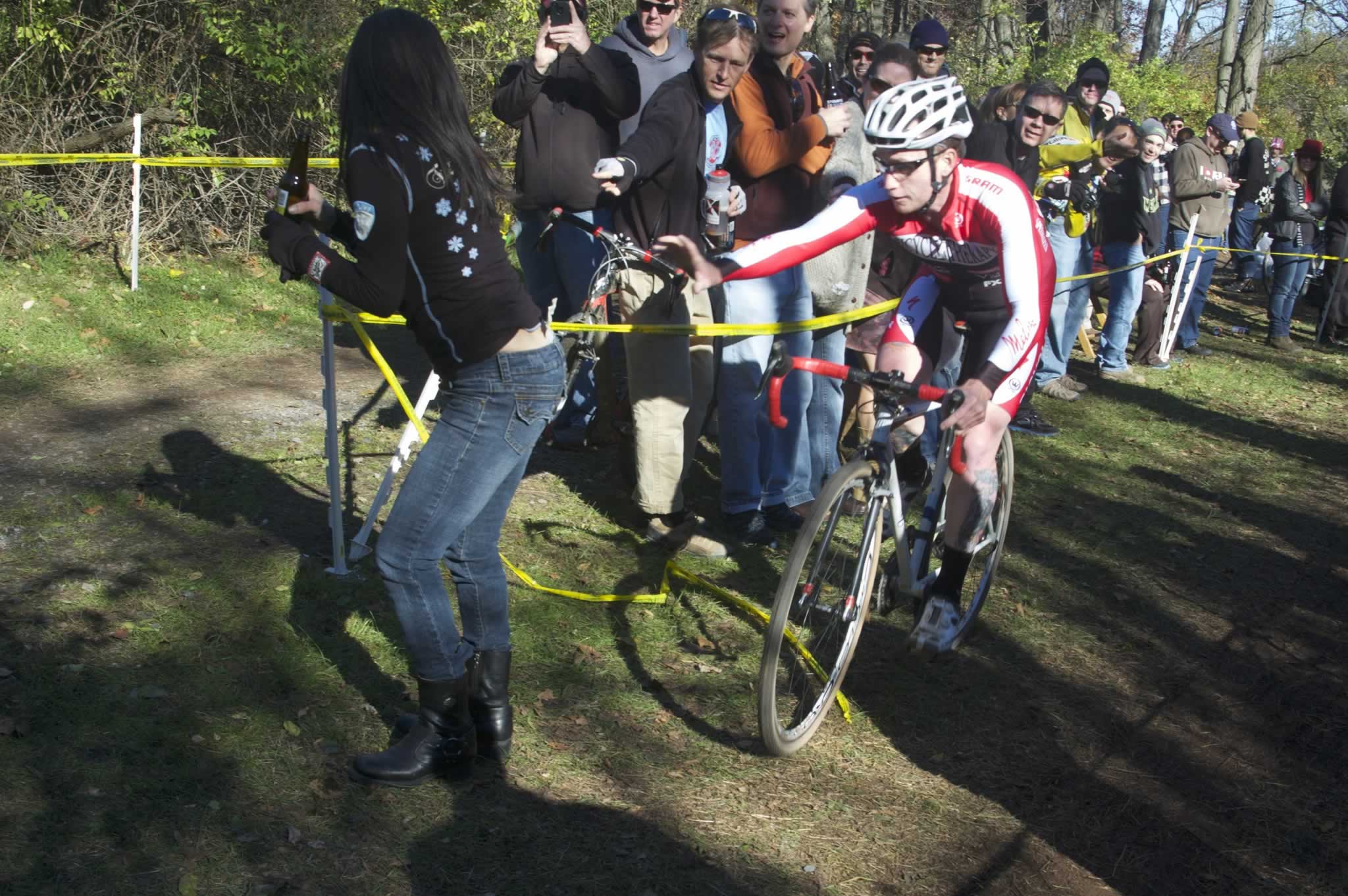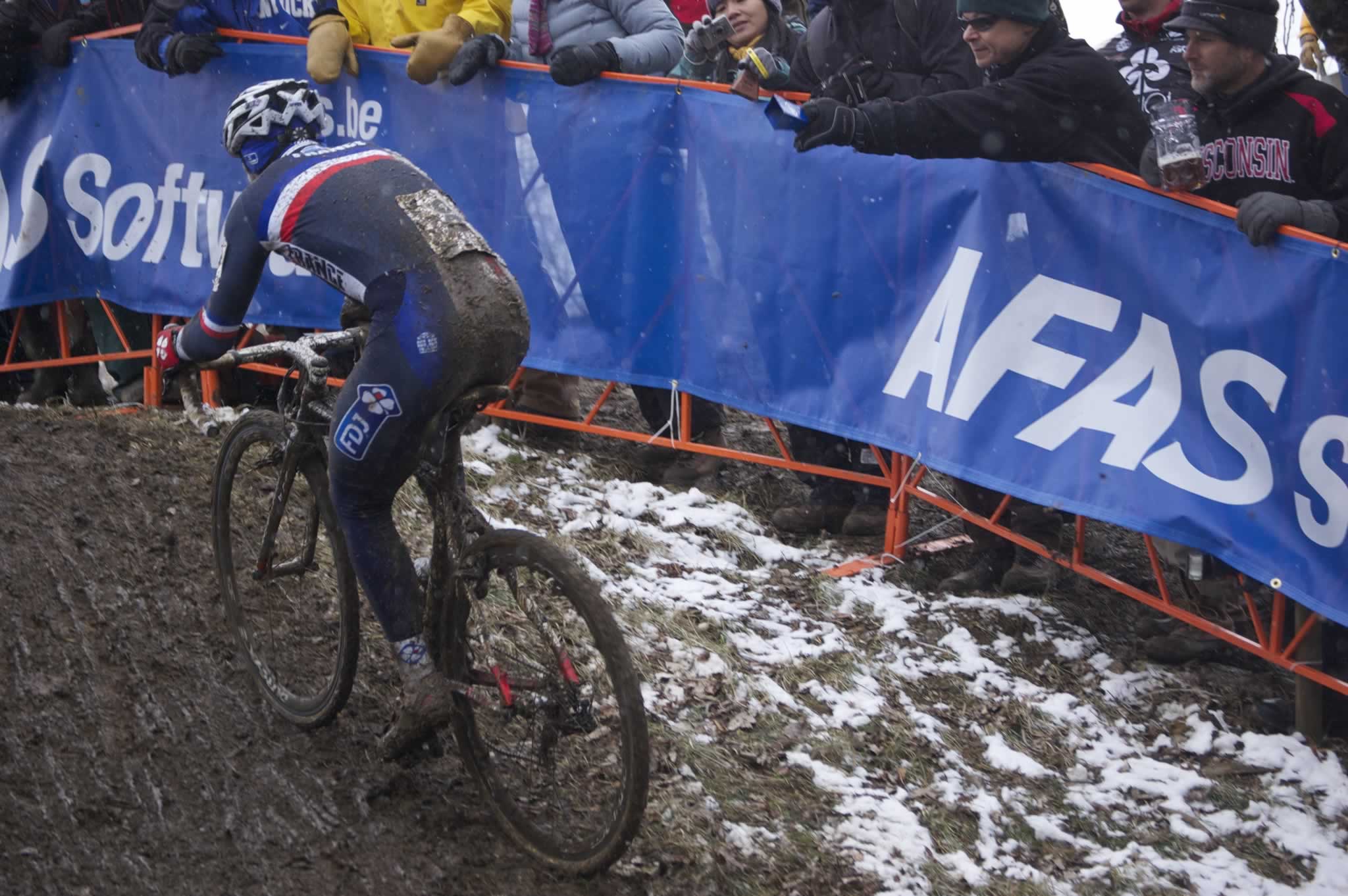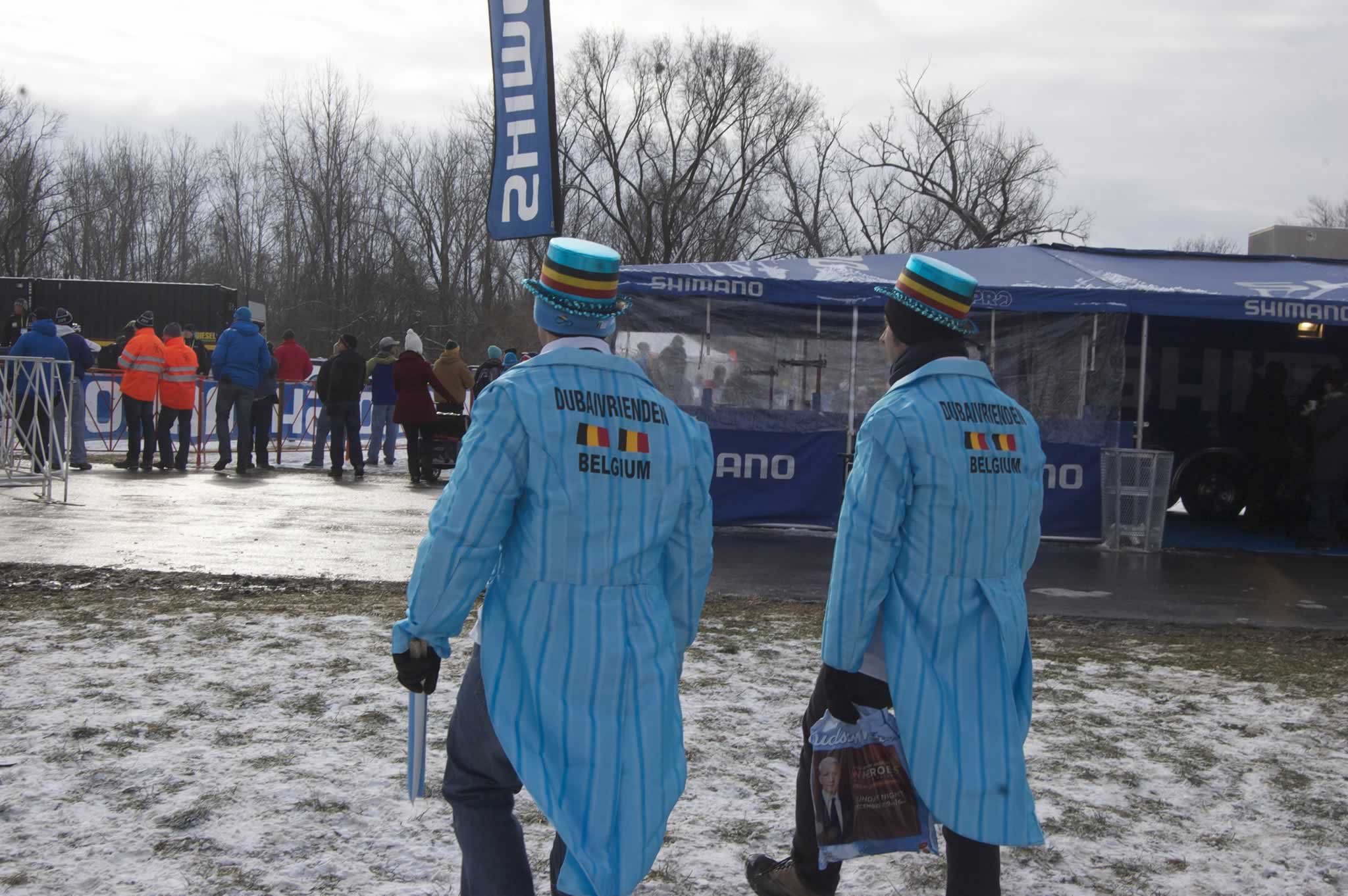Beer, bacon or crisp dollar bills: doesn’t everyone love a handup?
Words by Ben Popper. Photos by Pat Engleman
First published in Issue 1: October 2014
The handup is essentially an extension of our normal rides. It is the warm, shaken can you pull out of your bag atop a mountain after finishing the climb. It’s the ill-advised, ice-cold tall boy purchased at the general store in the middle of nowhere.
Everything about grabbing a half-filled, pre-drank, dirty, sticky can of beer four-fifths of the way though a 60-minute all-out effort sounds like a bad idea. Yet, more times than I’d like to admit, I’ve reached out, connected with that can and tried my best to drink every last drop of available liquid. For most people it will result in your worst lap time, but if completed with grace and a little bit of panache it can yield the best cheering and bring admiration for years to come.
The handup seems innocent enough, but is not everyone’s idea of a good time. Plenty of people show up and pay good money to race their race. Realizing that taking that beer probably isn’t going to help them at all, they ride on through, hopefully finishing well enough to justify passing on the libations. Many put a ton of time, effort, money and training into racing bikes, making it their right to pass the heckle pit and not join in the fun.
Show Me The Money.
We all know that the handup isn’t limited to a can of warm, yellow, cheap beer. It seems that nothing is safe from being held out on the course for you to try to pick off at high speeds. I made more money racing, and finishing one lap down, at Cross Vegas than I did in an entire week of gambling. I’ve seen whiskey, bacon, hot dogs, birthday cake and even a baby held out for the daft hand of a racer. The buffet set out before racers can be tantalizingly gut-wrenching.
The popularity of cyclocross has exploded in the United States over the last decade. Arguably one of the primary reasons for that is because it has always been viewed as a more fun form of racing. Compared to the road season, the more relaxed party atmosphere at ‘cross races has always been a part of race day. From the course-side hot tub in Portland, to the Superfans and their heavy metal-blasting, beer bong-toting, heckling in Madison, the community has always felt more laid back after a season of serious racing on the pavement.
The handup and heckling seem to be an integral part of cyclocross from the perspective of both fans and racers. Most often those dishing out the beverages and the insults are looking for it in return. Dave Pryor, the organizer behind the 2013 edition of the Singlespeed Cyclocross World Championships in Philadelphia, obviously supports the shenanigans and put it this way: “At this point I can’t imagine standing behind yellow tape without offering my friends racing a piece of bacon, dollar bill, or a reminder about how slow they’re going. And when I’m out there I’ve always got my fingers on the brakes in case I see a red solo cup filled with liquid courage.”
Stand Up, Hand Down.
Yet, some have felt in recent years that the party has gotten a little too rowdy, the heckling a little over-aggressive and the crowd a bit unruly. The people in charge have determined the scapegoat for all this to be the handup. It was an easy target because, technically, it is against the rules. The handup gets vaguely lumped in USAC Rule 4A15: “Feeding is not permitted unless specifically authorized by the Chief Referee [relegation or disqualification for unauthorized feeding] … Feeding only takes place in the pit lane, unless the Chief Referee specifies otherwise.” There are all sorts of mandates buried in the rulebook concerning other cycling disciplines, but this is the only rule in the cyclocross section that could pertain to a handup.
Personally, I’ve been scolded for grabbing cash during a race, justified under the guise of “no outside assistance”, and while it did help me cover the race fee, it sure didn’t make me go any faster. And technically it’s not against any specific or general rule overseeing cyclocross. What that drove home was that there was little understanding of the official rule and rather a vague white-washing of the handup being illegal and the grounds for disqualification.
From here, the story is part of the current narrative in cyclocross racing: the struggle between promoters trying to run serious events, and spectators and racers making things more interesting. ‘Handups Are Not A Crime’ quickly became a rallying cry from all those that raced ‘cross for that specific atmosphere. Steve Smith of All Hail the Black Market says he coined the Hand-Down as “a reaction to the general bureaucratic nonsense surrounding handups.” As all this was happening, quietly in the background, the fight seemed to be against a larger issue at the races.
Ultimately, the handup can be easily ignored if the spectator is doing it correctly. Even the dollar bills hanging precariously from unzipped pants will not be seen if you are not looking, racing with your eyes rolled into the back of your head. Problems arise when the course tape loses its meaning, and when heckles go from light-hearted jabbing to personal attacks on your character. A good heckle can be the perfect motivator when the light is about to go out and the final surrender is given to the legs. Trying to snatch a dollar from a bikini waist standing on the sidelines can get your focus back into the game, even though the task is as far from it as possible. A bubble machine set up on the tight switchback makes for a highlight of the lap.
Therein lies the root of the problem. As cyclocross exploded, the spirit of being a quality supporter and spectator was left in the dust. Heckling became less about thinking up witty things to shout at your buddies, and turned into putting people down about their performance. As Pryor puts it: “There’s no place for hecklers who are crude, sexist, profane or just lame. If you can’t do better than ‘You suck!’, then stick to handups and laughing at the people who have turned heckling to an art form.”
Taking it Too Far.
Spectators are taking it upon themselves to dig holes in sandpits, water down parts of dry courses and push the tape together. Not in the name of a better racing experience for the people on the course, but for a better party experience for themselves. When you push the tape together in a sand pit, making a lane only a foot or two wide that is lined with more food than is offered at an Old Country Buffet, there is going to be blowback. That is because first and foremost, everyone toeing the line came out to race their bikes and that means everyone should be getting the same respect on the course, regardless if they are the number one-ranked pro or the last person in the beginner race. The over-zealousness doesn’t seem to happen to the elite field as often, so it is unclear why so many think it is alright to sometimes disrupt the races of the slower categories. The five guys off the back of the slowest race might in fact be racing and want a clear course just the same as the elite field.
With the confusion about the specifics of the rulebook, there also seems to be a disparity between what a promoter feels is appropriate and safe at their races and what the officials want to see happen. They are both protecting their pocket book, just in different ways. In the instance of USAC, rider safety is the primary reason for why there should not be uncontrolled handups on the course. That can be legitimate, but I have seen far more people injured in start line sprints than a couple racers knocking together over a botched handup. Arguably though, it is the promoter who will pay for things that go wrong at the race. If they allow for enough unruly, dangerous and inappropriate spectators on the course, people will stop showing up. They won’t want to pay their hard-earned money to race on a bad course. Yet race organizers need to foster the party everyone is coming to participate in, both on and off the course. It is in the promoter’s best interest to run a fun and safe race. ‘Fun’ being the key behind all of this. As a promoter, Pryor feels it “sure makes ‘racing’ more fun, whether I’m on the receiving end of a heckle or the giving end of a handup. And it’s starting to spread to mountain bike races, too. Though if heckling ever becomes a thing in triathlon, I’ll know it’s time to try something else.”
Joining the Party.
For some it seems that being part of the party is more important than being a part of the race. When in fact it could be that it is more important for the party to be part of the race. After all, it is a huge part of why people are attracted to cyclocross in the first place. Yet, the party needs to stay a little separated from the race and as long as the party stops at the tape, everything should be OK. The goal on race day for spectator, promoter and racer alike is that everyone has a great time amongst friends.
To call the handup dead is being over-dramatic. Case in point: Ted King, amongst others, took a skinny tyre handup atop the climb on stage eight of the Tour of California this year. If anything, it is becoming more popular, spreading to any discipline where someone can hang their arm onto the course. Calling it a crime on the other hand, while still dramatic, seems more accurate. With disqualifications and fines being handed down from USAC and UCI for partaking during a race, it sure feels like a crime. If we look at the handup in terms of being the whipping boy for a bigger problem, it might be possible to take the heat off of it if things stay a little more sane on and off the course. We all know that a slice of bacon, swig of beer or shot of whiskey is not enhancing anyone’s performance. It is not giving an unfair advantage to the participating racer. How the handup is given, though, probably impacts other racers and we need to make sure everyone is having a good time – whether they like the party or not.
In the eyes of the USAC, cyclocross seems to be the deadbeat little brother in the cycling family, where the eldest son is the star quarterback. The father is always asking why cyclocross can’t just be like its big road racing brother: serious, disciplined and focused on the specifics of racing bikes. So in an effort to get cyclocross to buckle down, they are locking the liquor cabinet in hopes that we start obeying our curfew. The problem is, fine or not, we are going to probably keep getting beer from our buddies on the backside of the course. And if handups were to disappear altogether, as Pryor puts it, the races would “be slow road crits around a soccer field. If they were ever done away with, most of us would go and spend our weekends riding these awesome bikes in the woods, for free.”


